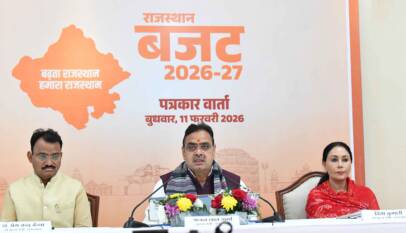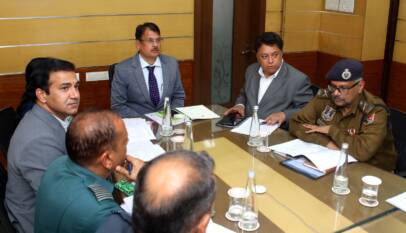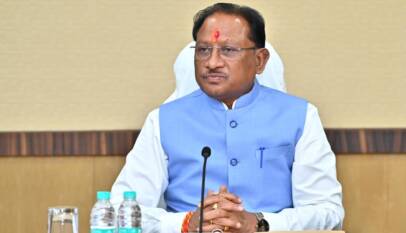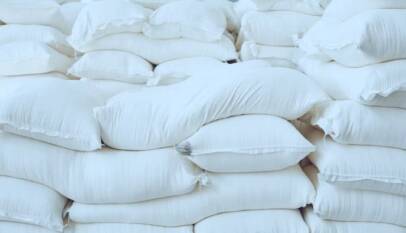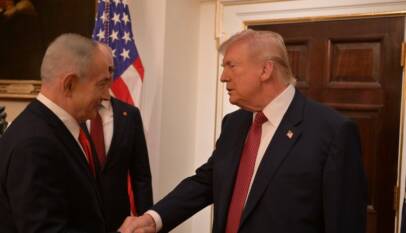Madhya Pradesh Ranks First in the Country for Computerization of Primary Agricultural Credit Societies: Union Minister Shri Shah
Union Home and Cooperation Minister Shri Amit Shah stated that the computerization of Primary Agricultural Credit Societies (PACS) is underway across the country, and Madhya Pradesh holds the top position in this effort. He praised the state for achieving 100% computerization. He also noted that Madhya Pradesh produces 5.5 crore liters of milk, contributing 9% to the nation’s total production. He emphasized that the era of good governance in Madhya Pradesh presents a golden opportunity to revitalize the cooperative sector. The Central Government stands firmly with the farmers of the state.
Shri Shah underscored the need to expand cooperative and dairy activities to at least 50% of the villages in collaboration with the National Dairy Development Board (NDDB). He also stressed the importance of policy formulation and planning to achieve this, assuring financial support from the Central Government. He added that extensive activities must be conducted to ensure farmers receive the full benefit of milk production. The NDDB and the Madhya Pradesh Government will jointly work to increase farmers’ incomes through milk production and processing into various products. He likened the current system to a two-lane road that now needs to be expanded into a six-lane highway.
Shri Shah was addressing the State-Level Cooperative Conference at Ravindra Bhavan in Bhopal on Sunday. During the event, in the presence of Shri Shah and Chief Minister Dr. Mohan Yadav, agreements were exchanged between the National Dairy Development Board and the Madhya Pradesh Dairy Federation.
The Union Minister highlighted the immense potential in the fields of agriculture, animal husbandry, and cooperation in the country. Under the leadership of Prime Minister Shri Narendra Modi, significant reforms have been introduced in the 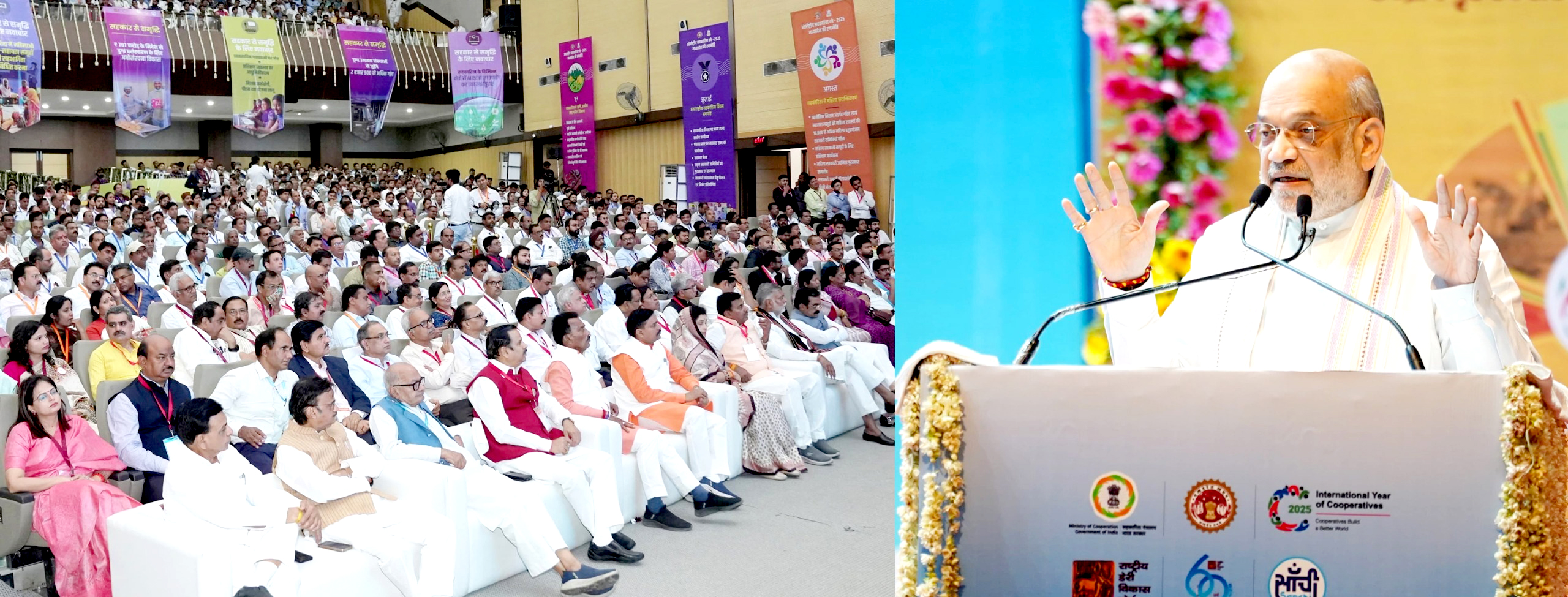 cooperative sector over the last three and a half years. These include the empowerment of PACS, promotion of the dairy sector, expansion of cooperative activities in production, and improved functioning of urban cooperative banks, district cooperative banks, and rural banks.
cooperative sector over the last three and a half years. These include the empowerment of PACS, promotion of the dairy sector, expansion of cooperative activities in production, and improved functioning of urban cooperative banks, district cooperative banks, and rural banks.
Following the establishment of the Union Ministry of Cooperation, one of its first steps was to develop model by-laws for PACS and share them with states. Shri Shah expressed happiness that these by-laws have now been implemented across India, thanking all states for their adoption. He said this move has infused new life into the cooperative movement. Today, PACS are involved in activities such as operating petrol pumps, gas agencies, railway ticket bookings, and bill collections—far beyond their earlier role of providing short-term agricultural loans, which yielded minimal profit. Currently, PACS are engaged in over 30 activities, enhancing its revenue significantly.
Shri Shah noted that the cooperative movement had gradually become dormant in many states, with varied conditions across the country. While the movement had gained momentum in six states, in some places it became over-bureaucratized or even ineffective. The root cause of this stagnation was the lack of timely legal reforms. Since cooperatives are a state subject under the Constitution, laws were not updated to meet changing needs, nor were new laws enacted. Furthermore, no centralized, holistic thinking was done at the national level about cooperatives concerning the country’s political, geographical, rural, agricultural, and livestock development. This was primarily because, until recently, there was no dedicated Ministry of Cooperation at the Central level. Prime Minister Shri Modi rectified this by establishing the Ministry of Cooperation 75 years after India’s independence.
He emphasized the need to strengthen the three-tier cooperative system to empower primary cooperative institutions. With the help of the new by-laws, the integration of PACS with dairy and fisheries activities to form multi-purpose PACS (M-PACS) has become possible. Furthermore, ₹2,500 crore has been allocated by the Central Government for the complete computerization of all PACS. These societies are now linked with District Cooperative Banks, State Cooperative Banks, and NABARD, with a system in place for online audits. User-friendly software has also been developed in local languages for ease of operation.
At the national level, three new farmer cooperative organizations have been created. These include an Export Cooperative to help farmers access global markets and an Organic Cooperative to promote organic products and ensure farmers get better prices for their produce. 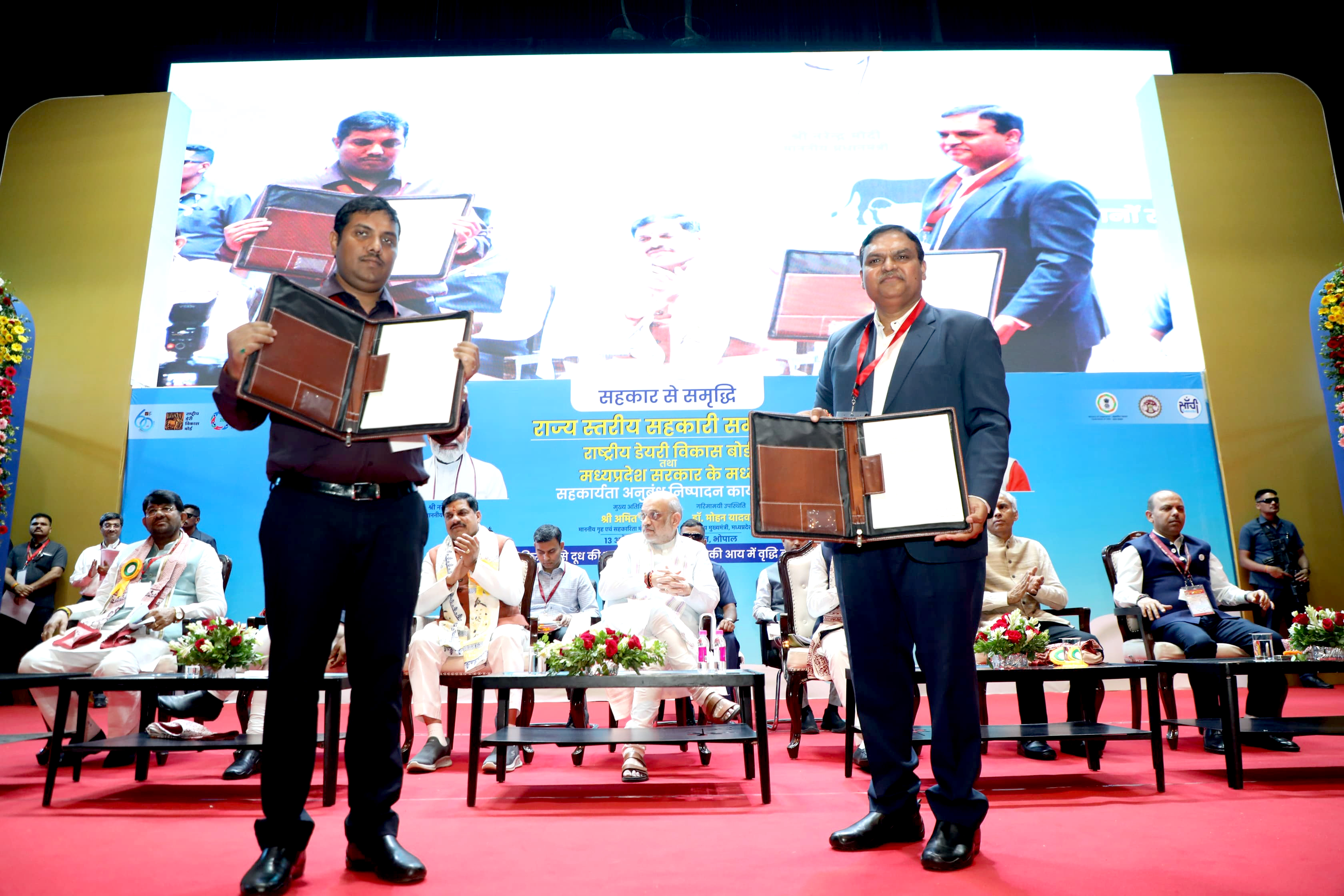 These new institutions are expected to grow bigger than Amul in the next 20 years. Under the Seed Cooperative, farmers with as little as 2.5 acres of land have also been given recognition. The income from these cooperative activities will be transferred directly to farmers’ accounts, ensuring profits benefit them rather than middlemen. Additionally, a Cooperative University has been established to provide specialized training in the cooperative sector.
These new institutions are expected to grow bigger than Amul in the next 20 years. Under the Seed Cooperative, farmers with as little as 2.5 acres of land have also been given recognition. The income from these cooperative activities will be transferred directly to farmers’ accounts, ensuring profits benefit them rather than middlemen. Additionally, a Cooperative University has been established to provide specialized training in the cooperative sector.
Shri Shah highlighted that farmers often don’t get fair prices when selling milk in the open market. Hence, the goal must be to connect every village’s farmers with dairy operations in greater numbers and ensure value addition through the production of items such as curd, buttermilk, paneer, and cheese. These efforts will guarantee that profits go directly to farmers. To achieve this, the state must improve milk production, breed quality, and collection networks. The agreements signed at the conference mark an important step toward these goals.
Union Minister Shri Shah is like Paras-Patthar for Governance: CM Dr. Yadav
Chief Minister Dr. Mohan Yadav praised the exceptional management skills of Union Minister Shri Amit Shah, likening him to the philosopher’s stone (Paras)—whatever department he takes over turns into “gold.” Dr. Yadav stated that the agreements being signed in Shri Shah’s presence are opening new avenues of possibilities for Madhya Pradesh. He emphasized that the cooperative sector holds immense potential and that multi-purpose cooperative societies are being used to expand cooperative activities in the state.
He added that the state government has taken several key decisions for the welfare of the underprivileged. Now, cooperative societies will also operate petrol pumps, medical stores, and other services. During the Global Investors Summit, agreements were signed to run factories through cooperatives as well.
Sharing a personal experience, Dr. Yadav highlighted that milk production is a proven means of increasing household income. The government is making every possible effort to promote cow rearing and dairy production. A subsidy scheme has been introduced for cattle rearing. The state aims to increase milk production from 9% to 20% of the national output. The government is moving forward with the vision of establishing “Gokul” in every home. To improve farmers’ lives, the government will purchase cow’s milk directly. Under the guidance of Prime Minister Shri Narendra Modi and Union Minister Shri Amit Shah, the state government is sensitively committed to farmer prosperity. With the signing of large-scale MoUs, tremendous opportunities are now unfolding.
Historic Day for Cooperative Movement and White Revolution: Shri Vishwas Kailash Sarang
Minister of Cooperation, Sports, and Youth Welfare Shri Vishwas Kailash Sarang called it a historic day for the cooperative movement and the white revolution in the state. He said the Madhya Pradesh government has set a national example by implementing the CPP (Cooperative Public-Private Partnership) model, integrating public, private, and cooperative efforts. Under the guidance of the central government, efforts are being made to give new dimensions to cooperation.
Shri Lakhan Patel, Minister of State for Animal Husbandry (Independent Charge), highlighted the features of the new cooperative agreements. Member of Parliament Shri V.D. Sharma said that Union Minister Shri Amit Shah has presented a valuable gift to Madhya Pradesh through these agreements. He added that the cooperative dairy development work done in Gujarat will provide new momentum to Madhya Pradesh.
Dr. Nimesh Shah, Director of the National Dairy Development Board (NDDB), informed that a cooperative agreement (MoU) has been signed between NDDB, the Madhya Pradesh Government, and six milk unions. The state has endorsed the agreement through an organized board to increase milk production and farmers’ income. Under this agreement, farmers will receive training and support in marketing dairy products. The goals of the National Dairy Plan – White Revolution 2.0 also include the economic empowerment of women and the creation of employment opportunities. NDDB is committed to increasing the income of milk-producing farmers.
Agreements Signed Under CPPP Model
In the presence of Union Minister Shri Shah and Chief Minister Dr. Yadav, an agreement was signed between Majestic Group Mandideep, represented by Managing Director Shri Vigyan Lodha, and PACS Ghat Pipariya, District Raisen, represented by Committee Manager Shri Bhaskar Sharma, for the procurement and cultivation of Pusa Basmati rice.
Another agreement was signed between M/s Mushroom World Umbrella Ltd., represented by MD Shri Sameer Sagar, and PACS Salamatpur, District Raisen, represented by Committee Manager Shri Kunwar Singh Dangi, for the cultivation of Napier grass.
Union Minister Shri Shah also distributed sanction letters for the business expansion of selected PACS. The District Cooperative Central Bank Ratlam sanctioned Rs. 15 lakh project loan to PACS Bangarod for installing a weighbridge (Dharamkanta), District Cooperative Central Bank Mandla sanctioned Rs. 60 lakh to PACS Mehdwani for setting up a grading plant for Kodo and Kutki millets, and National Cooperative Development Corporation sanctioned Rs. 120 lakh to PACS Gogawa, District Khargone, for establishing a supermarket.
Among Other notable distributions Secretary Mahesh Verma of Tilakhedi Milk Cooperative, Bhopal was provided a micro ATM, Farmer Yash Raghuvanshi of PACS Sankalkheda Khurd received a Kisan Credit Card, Committee Manager Pushpendra Singh of PACS Susner, Agar Malwa, received a Letter of Intent (LOI) for a petrol pump, and Committee Manager Ajay Kumar Nayak of PACS Kua, Katni, received a drug license for running a Jan Aushadhi Kendra (generic medicine store).
The event was also attended by Chief Secretary Shri Anurag Jain, Union Cooperation Secretary Dr. Ashish Kumar Bhutani, Principal Secretary Cooperation Shri Ashok Barnwal, and Additional Chief Secretary Animal Husbandry Shri Umakant Umrao.
European Union Collaborated Flour ITALMOPA Flourishes In Indian Markets.
Brussels; February 2026: On 13th September 2022, the Italian association of millers repres…


